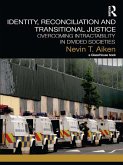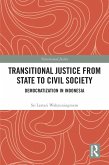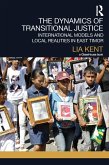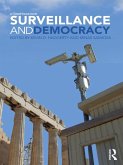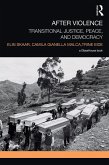Two decades after the wars, societies in Bosnia, Serbia and Croatia - albeit to different degrees - are still facing the legacies of the wars of the 1990s on a daily basis. Reconciliation between and within these societies remains a formidable challenge, given that all three countries are still facing unresolved disputes either at a cross-border level or amongst parallel societies that persist at a local community level.
This book engages scholars and practitioners from the regions of former Yugoslavia, as well as international experts, to reflect on the achievements and obstacles that characterise efforts to deal with the past. Drawing variously on empirical studies, theoretical discussions, and practical experience, their contributions offer invaluable insights into the complex relationship between transitional justice and conflict transformation.
Dieser Download kann aus rechtlichen Gründen nur mit Rechnungsadresse in A, B, BG, CY, CZ, D, DK, EW, E, FIN, F, GR, HR, H, IRL, I, LT, L, LR, M, NL, PL, P, R, S, SLO, SK ausgeliefert werden.



